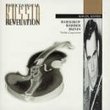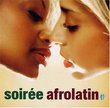| All Artists: Piotr Ily'ich Tchaikovsky, Yevgeny Mravinsky Title: Tchaikovsky: Symphony 4 in F Minor / Serenade in C for Strings Members Wishing: 0 Total Copies: 0 Label: Russian Revelation Release Date: 4/21/1998 Genre: Classical Styles: Forms & Genres, Serenades & Divertimentos, Symphonies Number of Discs: 1 SwapaCD Credits: 1 UPCs: 5032636100552, 503263610055 |
Search - Piotr Ily'ich Tchaikovsky, Yevgeny Mravinsky :: Tchaikovsky: Symphony 4 in F Minor / Serenade in C for Strings
 | Piotr Ily'ich Tchaikovsky, Yevgeny Mravinsky Tchaikovsky: Symphony 4 in F Minor / Serenade in C for Strings Genre: Classical
|
Larger Image |
CD DetailsSimilar CDs
|
CD Reviews"This is fate which hangs above your head like the sword of Hiram Gomez Pardo | Valencia, Venezuela | 08/27/2008 (5 out of 5 stars) "This is the brief comment that overly resumes the spirit of this OP. and it was extracted from a letter from the composer to his protégée. Nadezda Von Meck.
No other symphony initiates with major savageness and steeled vitality that this one. Tchaikovsky was at the eve of an emotional collapse and so this work would seem to be his farewell. The First movement is one of the most anguishing, obtrusive and oppressive pages of the literature. It condensates the pain, the horror and the hopeless without any possible return or even possibility of redemption. This struggling combat is smoothed with the bassoon singing an over blowing waltz that horizontally would seem to counterpoise the relentless verticality of the fatality. A slight melancholy dominates the slow movement, which opens with a plaintive melody exposed by the oboe over soft pizzicato. It's a solemn hymn brilliantly exposed and without place to doubt in which concerns the sorrowful statement. The Third movement is unique in its style, begins and ends with pizzicatos of the entire woods, briefly interrupted by a central trio woodwinds and brass depicting drunken bands and marching bands (By the way, this device will be employed by Mahler in several of his symphonies). Although the finale is brilliantly flamboyant, there is a visible burden of abandon. The triumphant finale is emotive and breathtaking Mravinsky gives us one of his most extraordinary achievements with this virile and heartfelt performance. The orchestral coloratura and the piquant passages express that visible burden of dark presages. The serenade for strings is above the average, but is far from the unsurpassable version of Charles Munch at the fron of the Boston Symphony Orchestra." |

 Track Listings (8) - Disc #1
Track Listings (8) - Disc #1


